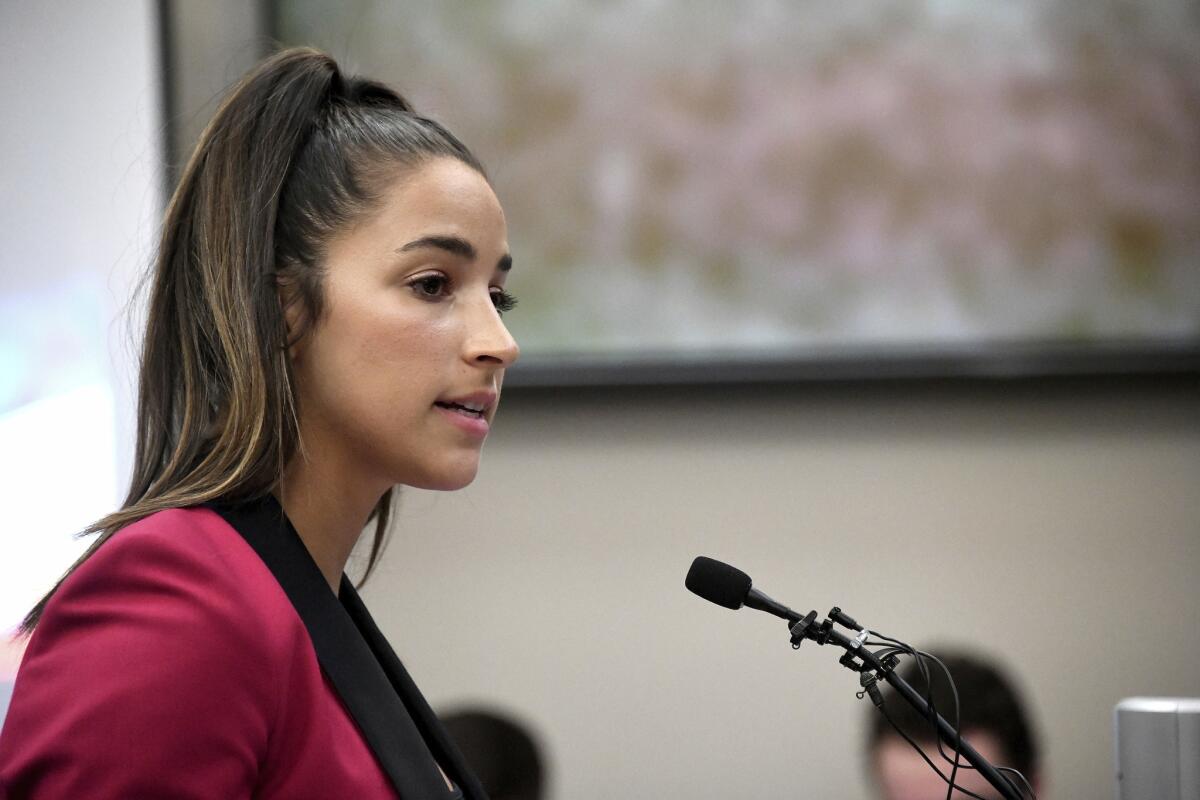California grants more time for filing child sexual abuse allegations under new law

- Share via
SACRAMENTO — Victims of childhood sexual abuse will have more time to report allegations and file a lawsuit under a California law signed Sunday by Gov. Gavin Newsom.
The legislation was introduced following widespread allegations of abuse of minors by Catholic priests as well as the 2018 conviction of Larry Nassar, a former U.S. Olympic gymnastics team doctor, for molesting young athletes.
“The idea that someone who is assaulted as a child can actually run out of time to report that abuse is outrageous,” said Assemblywoman Lorena Gonzalez (D-San Diego), the bill’s author. “More and more, we’re hearing about people who were victims years ago but were not ready to come forward to tell their story until now.”
Currently, survivors must file a lawsuit within eight years of reaching adulthood or within three years of the date a survivor who has reached adulthood “discovers or reasonably should have discovered” they suffered damages, whichever comes later.
Gonzalez’s Assembly Bill 218 extends the statute of limitations for reporting childhood sexual assault from the time a victim is age 26 to age 40, and increases the period for delayed reasonable discovery from three to five years.
The bill also provides a window of three years for the revival of past claims that might have expired due to the statute of limitations. In addition, damages can be trebled in cases in which a child becomes a victim of sexual assault as the result of an effort to cover up past assaults, Gonzalez said.
“We shouldn’t be telling victims their time is up when in reality we need them to come forward to protect the community from future abuse,” Gonzalez added.
The measure had support from gymnastic athletes who were victims of Nassar, who was sentenced to 40 to 125 years in prison after more than 260 women and girls came forward with assault allegations against the doctor that dated to the early 1990s.
The bill was opposed by the California Civil Liberties Advocacy, which argued in a letter to lawmakers that the proposal will “negatively impact civil defendants because the availability and reliability of evidence diminishes over time.”
The group also maintained that “extending the statute of limitations in civil suits is more in the interests of the plaintiffs’ lawyer industry than that of the abuse survivors, in which the negative effects will be felt in the decades to come.”
However, the Victim Policy Institute wrote: “The current law lets too many abusers avoid accountability for their actions. The only good thing to come out of recent scandals was an environment that encouraged well-known women — actors or Olympians — who were victims of childhood sexual assault to come forward.”
Newsom also signed a bill that temporarily lifts the statute of limitations on lawsuits for damages over sex abuse allegations against former USC campus gynecologist George Tyndall, who has pleaded not guilty to charges he sexually abused 16 former patients at the campus clinic dating to 2009.
Although nearly 400 women have made allegations against Tyndall covering his 27-year career at the university, the statute of limitations for damages arising from a sexual assault that occurred when the victim was an adult is 10 years from the date of the last actionable conduct or three years from the discovery of the resulting injury, whichever is later.
The new law allows lawsuits to be filed, starting Jan. 1, alleging improper sexual contact or communications by a physician at a student health center between Jan. 1, 1988, and Jan. 1, 2017.
More to Read
Sign up for Essential California
The most important California stories and recommendations in your inbox every morning.
You may occasionally receive promotional content from the Los Angeles Times.










